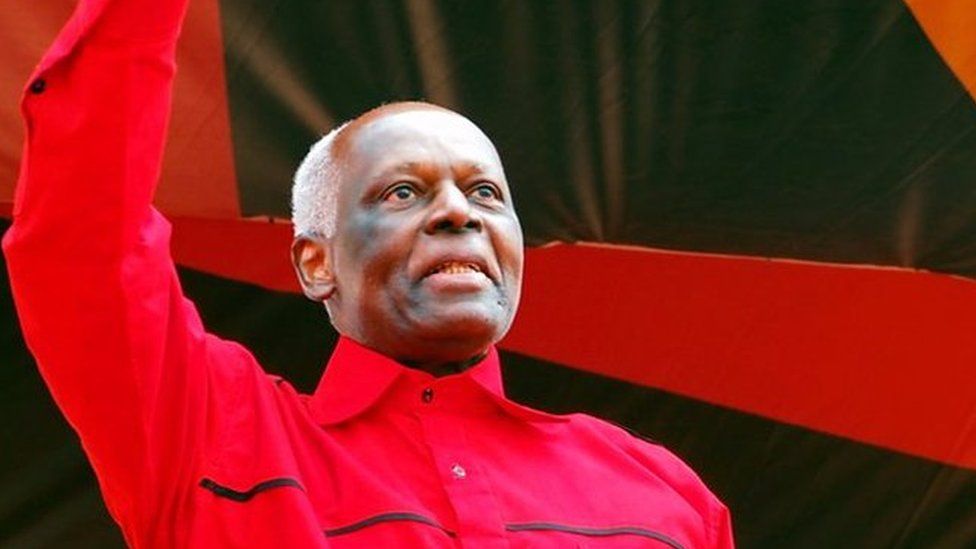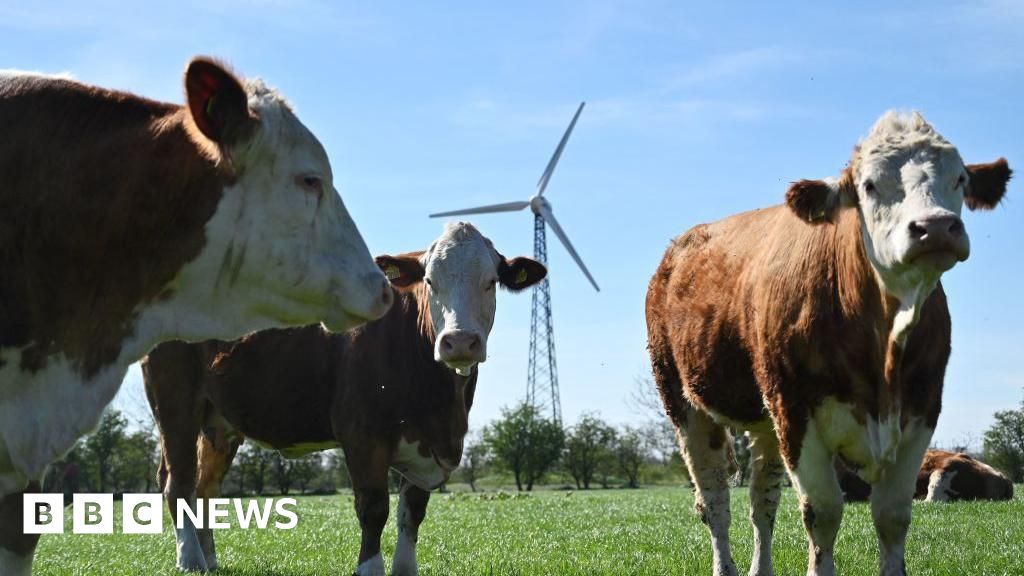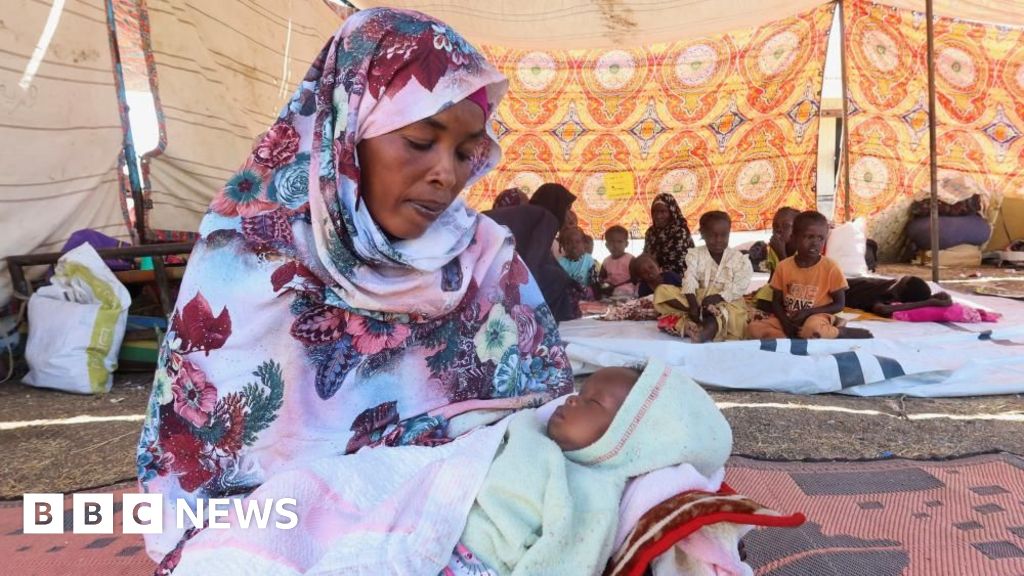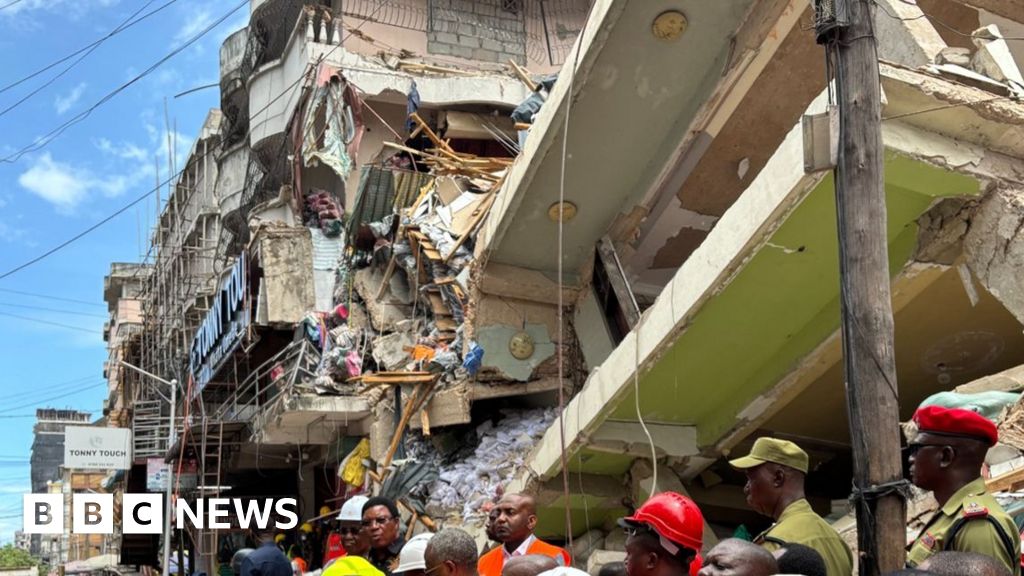ARTICLE AD BOX
By Israel Campos
BBC News
 Image source, Reuters
Image source, Reuters
José Eduardo dos Santos handed over power in 2017 after 38 years as president
José Eduardo dos Santos, Angola's second president who ruled the mineral-rich state for almost four decades, has died aged 79, the government says.
He died in Spain where he was being treated for an undisclosed illness.
Dos Santos will be remembered for ending a long-running civil war in the early 2000s - he was dubbed the "architect of peace".
But his legacy is soiled by high levels of corruption and human rights violations while he was in power.
Having graduated in petroleum engineering in the Soviet Union in 1969, Dos Santos was only 37 years old when he became Angola's president a decade later, following the death of the first president, António Agostinho Neto.
At the time, just four years after gaining independence in 1975, the country was wracked by a civil war between the two groups that had fought Portuguese colonisation - Dos Santos' MPLA and Unita.
The war lasted for 27 years and ravaged the country. About 500,000 people are believed to have died in the conflict.
It also drew in foreign powers, with South Africa - then under white-minority rule - sending troops to support Unita, while Cuban forces intervened on the government's side.
Image source, AFP
Image caption,Dos Santos and Unita leader Jonas Savimbi (R), seen here in 1995, were hailed for their moves towards peace
Dos Santos presided over a Marxist-oriented one-party state until the collapse of the Soviet Union and the end of the Cold War led to the MPLA and Unita signing a peace accord.
It saw Dos Santos and Unita's Jonas Savimbi face off against each other in the first multi-party elections in Angola since independence.
Dos Santos defeated Savimbi by a narrow margin, resulting in a second round being called, but Savimbi boycotted it, choosing to take up arms again.
Just over a decade later, in February 2002, Dos Santos's troops killed Savimbi and a peace deal was later negotiated with the new Unita leadership.
"Not one more shot, we have to preserve the people alive and negotiate peace," Dos Santos said at the time, when he was about to formally declare the end of the war.
Thus, a new country was born.
Reconstruction and reconciliation were Dos Santos's main goals. At the time, he enjoyed considerable popularity, as demonstrated by the victory of the MPLA in the 2008 elections with 82% of the vote.
Cold and distant
However, in subsequent years, accusations of high-level corruption, especially in the oil sector, mismanagement of the economy and a crackdown on political dissent dogged his administration.
Dos Santos, who gained the reputation of being a cold and distant president, would say very little on these matters publicly, while discontent against his regime grew. It led to an increase in his personal and family security.
In one of his rare sit-down television interviews, in 2013, Dos Santos told Portuguese channel SIC that Angola was completely stable, and that the groups opposed to his regime were very small and "well identified".
By then, nepotism was already rampant.
He appointed close family members and friends to prominent positions in government, including his son José Filomeno dos Santos, also known as Zenu, as head of Angola's Sovereign Wealth Fund, and later, his daughter Isabel dos Santos as head of the state oil company Sonangol. She was said to have become Africa's richest woman.
Increasingly, it appeared as though Angola was turning into a dictatorship, with opposition politicians, civil rights activists and journalists persecuted and even killed.
One of the cases that became well known around the world, and certainly affects Dos Santos's legacy, was the arrest of 17 activists who were accused of "crimes of rebellion" and of plotting a coup.
Their crime? They were found reading the book, From Dictatorship to Democracy: A Conceptual Framework for Liberation, by American writer Gene Sharp in 2015.
Image source, AFP
Image caption,Dos Santos assumed Joao Lourenço (R) would not rock the boat
In 2017, 38 years after first taking the oath of office, Dos Santos finally stepped down, choosing his former Defence Minister, João Lourenço, as his successor.
A year later, Dos Santos also resigned as leader of the MPLA. In his last speech to the party, he admitted that he had made mistakes during his long time in power.
"Mistakes are an integral part of the improvement process, so it is said that we learn from mistakes," he told the crowd.
Dos Santos also said he left office with his head held high - and was accorded the title of "emeritus president" by his party.
But his position was fragile.
Son jailed
Reportedly determined to fight corruption in Angola, the newly elected Mr Lourenço targeted Dos Santos - not directly, but through his children.
His son Zenu, for example, was jailed for five years for fraud after $500m (£378m) was transferred from the national bank of Angola to an account in the UK.
His daughter, Isabel, has been banned from entering the US for "involvement in significant corruption", according to the US state department.
At the time, Ms Dos Santos said the allegations against her were entirely false and that there was a politically motivated witch hunt by the Angolan government.
Image source, Getty Images
Image caption,Dos Santos seen here five years into his presidency at a press conference in Paris
Soon after he left power, Dos Santos went into exile in Barcelona, Spain, where he was reportedly treated for a long-term health condition that was never officially confirmed by his family members, despite having been reported in the Angolan press for many years.
He last visited Angola in September 2021, where he stayed until early 2022. During his time in the country, he met President Lourenço twice at his official residence.
However, these meetings did not bring any reprieve for the Dos Santos dynasty, nor erase the stain on his legacy.
By bringing peace to Angola he could have been remembered as a national hero, but his long time in power, the oppressive measures he introduced and the corruption under his watch destroyed that reputation.

 2 years ago
22
2 years ago
22








 English (US)
English (US)